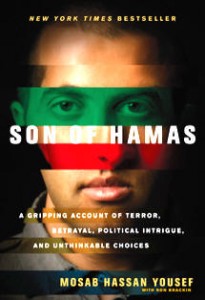Genre: Social Science/Women’s Studies
If you are interested in what it’s like to be a woman in Afghanistan, this is the book. It also has much to offer the field of gender studies in general.
This is different than the books I typically review in that the focus was on the social sciences (psychology, sociology, gender studies) rather than on religion. I did not quite realize what I was getting into with this one, but did find it fascinating and enjoyable.
Swedish journalist (now New Yorker) Jenny Nordberg shares from her time in Afghanistan researching the role of women in that culture, and especially the phenomenon of girls living as boys (which could be practiced for many reasons including to bring a son-less family honor, or to give freedom to girls who would otherwise be trapped in the segregation of society). She fluidly illustrates what it was like to speak with various women who have had experience as bacha posh and relays pieces of their stories. Multiple women were interviewed for the book, among them: An educated political women who shares a husband with another woman, and also has a daughter living as a son. A female doctor, who had been raised as a boy, and now faces the humiliating situation of being a divorced woman and mother. An unmarried woman who continues to live as a man despite external pressure to live otherwise. And a women who, by living as a man, has the freedom to drive a car and teach tae kwon do. Nordberg’s translator, also, is a culmination of several women, and demonstrates an additional perspective.
One interesting aspect of the book to me was that “living as a man” essentially translates to having the freedoms of Western women in wearing pants, going out of the house, driving, having an education, and so on. In one moment, Nordberg asks a woman what it would look like for her to become a man, and the woman responds that she is living as one already.
These illustrations go beyond the typical conversation of gender and sexuality, and into an analysis of the place and lifestyle of living out those truths. What makes a woman a woman? The dialog also goes briefly into many interrelated details including marriage, divorce, abuse, sexuality, religion, and even history. While my perspective is more conservative than the author’s, I was nevertheless intrigued by her observations and commentary.
For more on the author and book, check out her website.
I received a complimentary copy of this book from Crown Publishers.




 New York editor, Jen Gibbs, is a new hire at the prominent, Vida House Publishing, when a captivating manuscript appears on her desk–seemingly from the slush pile that is strictly off-limits. She is quickly drawn into the story, which takes place in the Appalachian Mountains–very near to the childhood home and family that she has intentionally moved away from. As she risks her career to chase the story, she is forced to also confront and reconcile with her own.
New York editor, Jen Gibbs, is a new hire at the prominent, Vida House Publishing, when a captivating manuscript appears on her desk–seemingly from the slush pile that is strictly off-limits. She is quickly drawn into the story, which takes place in the Appalachian Mountains–very near to the childhood home and family that she has intentionally moved away from. As she risks her career to chase the story, she is forced to also confront and reconcile with her own. This is one of the most helpful and practical guides to spiritual deliverance that I have come across. It addresses forgiveness, generational sins and curses, replacing ungodly beliefs, ministering healing to the soul and spirit, dealing with demonic oppression, and advice for staying free.
This is one of the most helpful and practical guides to spiritual deliverance that I have come across. It addresses forgiveness, generational sins and curses, replacing ungodly beliefs, ministering healing to the soul and spirit, dealing with demonic oppression, and advice for staying free.